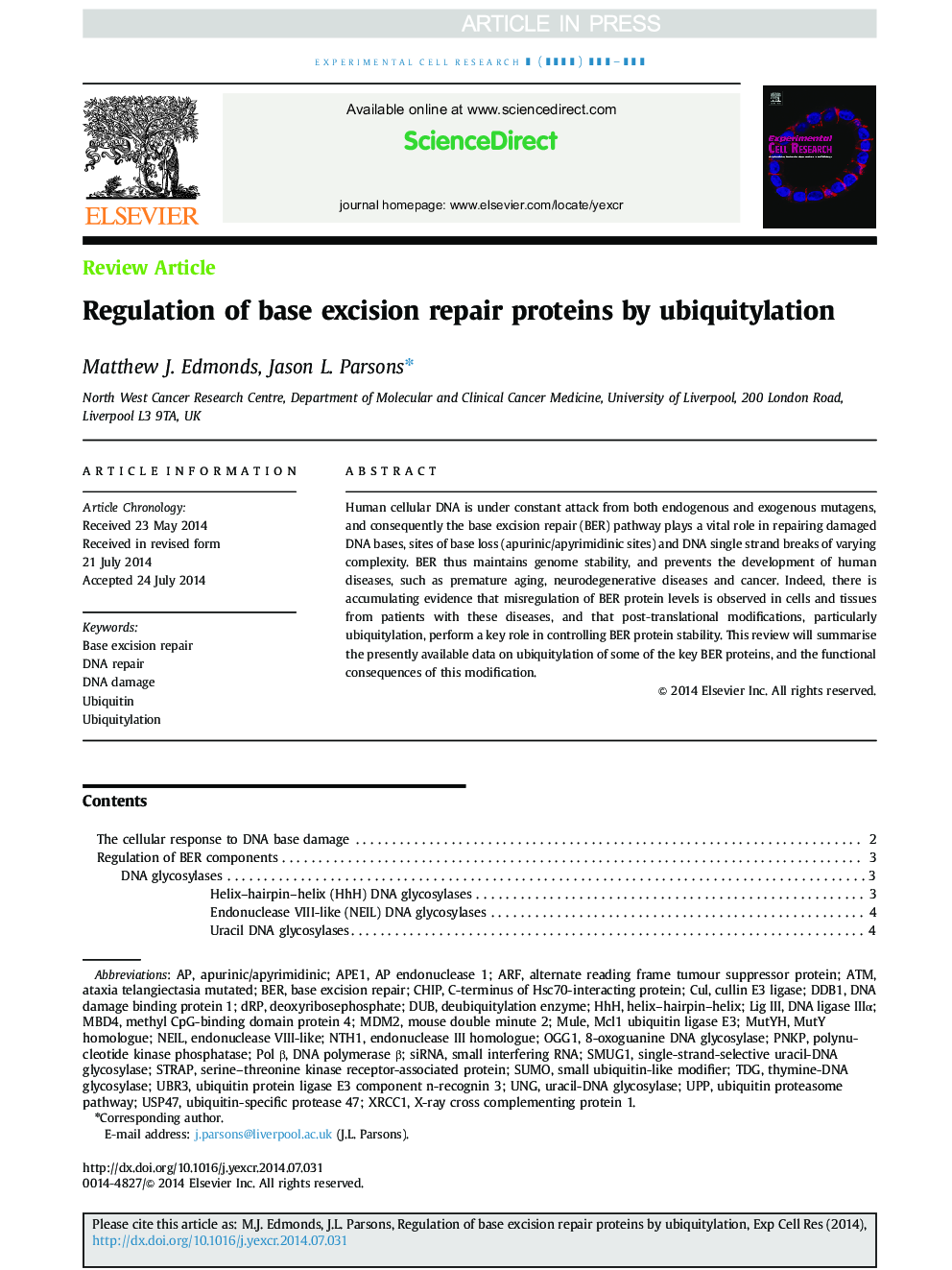| Article ID | Journal | Published Year | Pages | File Type |
|---|---|---|---|---|
| 10903999 | Experimental Cell Research | 2014 | 7 Pages |
Abstract
Human cellular DNA is under constant attack from both endogenous and exogenous mutagens, and consequently the base excision repair (BER) pathway plays a vital role in repairing damaged DNA bases, sites of base loss (apurinic/apyrimidinic sites) and DNA single strand breaks of varying complexity. BER thus maintains genome stability, and prevents the development of human diseases, such as premature aging, neurodegenerative diseases and cancer. Indeed, there is accumulating evidence that misregulation of BER protein levels is observed in cells and tissues from patients with these diseases, and that post-translational modifications, particularly ubiquitylation, perform a key role in controlling BER protein stability. This review will summarise the presently available data on ubiquitylation of some of the key BER proteins, and the functional consequences of this modification.
Keywords
Thymine-DNA glycosylaseTDGHelix–hairpin–helixAP endonuclease 1DDB1Nth1XRCC1UngAPE1DUBUbiquitin proteasome pathwayOGG1MBD4SMUG1ARFDRPHHHSTRAPNEILBERPNKPSUMOpolynucleotide kinase phosphatase8-oxoguanine DNA glycosylaseapurinic/apyrimidinicataxia telangiectasia mutatedDNA polymerase βMdm2Small interfering RNAsiRNADNA damageUpPDNA repairbase excision repairATMculMouse double minute 2MUTYHMuleUbiquitylationpol βCHiPsmall ubiquitin-like modifierUracil-DNA glycosylaseUbiquitin
Related Topics
Life Sciences
Biochemistry, Genetics and Molecular Biology
Cancer Research
Authors
Matthew J. Edmonds, Jason L. Parsons,
